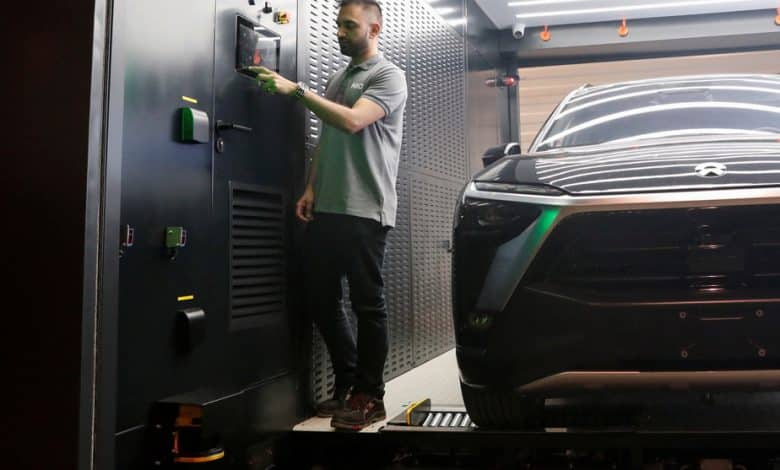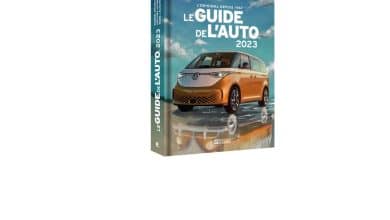The all-electric bet under the magnifying glass

Contents
Q: Several manufacturers say they are advancing at a forced pace in the all-electric bet, but shouldn’t they blame themselves, especially with the scandal of rigged diesel engines?
A: The “dieselgate” reduced the lobbying of car manufacturers to nothing and especially that of the Volkswagen group which, let’s be honest, cheated. But this obligation to switch to all-electric represents, in this context, a kind of lifeline for many manufacturers who can thus redeem themselves for driving.

PHOTO HANNAH ASSOULINE, PROVIDED BY FRANÇOIS-XAVIER PIETRI
Author François-Xavier Pietri
Q: Car brands lament the frantic pace of change imposed under the pressure of standards, but at the same time they sing the praises of their novelties reconciled with the environment. How to separate the true from the false?
A: Builders are looking to show that they’re making a real effort, and that’s fine. But we must not forget that the electric turn is also suitable for them. It allows these companies to downsize as an electric vehicle is, in some ways, easier to assemble. The electric vehicle also increases profits, because it is sold at a much higher price.
Q: At the Paris Motor Show a few days ago, the presence of such a large number of Chinese brands ready to electrify the European market visibly shook politicians and industry. But not consumers who will undoubtedly seize a favorable opportunity to afford an electric vehicle at a better price, right?
A: The only thing I can report from witnessing this is that Chinese brands have the curiosity of visitors. One can easily understand why. These electric vehicles compare in several respects to comparable European vehicles, are displayed at more advantageous prices and come with a seven or eight-year warranty. There are probably still a few pitfalls to overcome, such as distribution, but their arrival represents a serious threat for European manufacturers at the very least. In France, the vehicles that the French buy are no longer produced here. Of the ten best-selling car models last year, nine were of French brand, but only two are built on our territory.
Q: In this context, do you think that Europe should, like the American administration, invoke the defense of its sovereignty to support the local automotive industry? And then reserve its financial aid for consumers who buy vehicles built in Europe?
A: For the time being, there is no reason to believe, on the French side at least, that this option will be retained in the short term, according to President Macron.
A: The decision to switch to all-electric is binary. This is what is unfortunate. Current and future advances by car manufacturers are not taken into account. Take, for example, the air quality report submitted in 2019 by the Ministry of Ecological Transition. We learn that air quality has generally improved over the period 2000-2019 in France. Emissions of fine particles, those with a diameter of less than 10 microns (PM10), have fallen by 51%, even 61% for particles less than 2.5 microns (PM2.5), the most dangerous for health . At the same time, emissions of NOx, nitrogen oxides, largely from combustion emitted by transport, have fallen by 56% in less than 20 years. There is progress there.
Q: Ecological and health issues plead without any ambiguity in favor of eradicating vehicles equipped with a combustion engine. But the economic stakes weigh. On the consumer side, electric vehicles are now much more expensive and many households no longer have access to them. Is this the end of an era? Do we have to say goodbye to individual mobility?
A: That’s the question everyone dodges. No one seems to take into account households’ ability to pay. To buy a virtue, an electric vehicle, today you have to pay a lot of money. A societal split is brewing and obviously this perspective has not been sufficiently studied and thought through.

Electric car: they have gone crazy!
Francois-Xavier Pietri
Observatory Editions
203 pages












